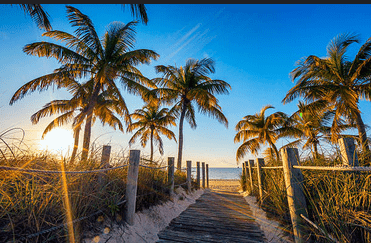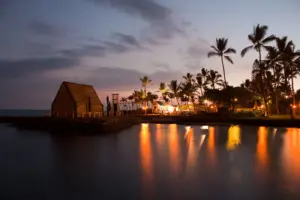Read Original Blog post: https://www.avantio.com/blog/florida-vacation-rental-laws/ 07/07/2025
By: Avantio
Laws and legislation are changing rapidly in 2025, affecting Florida short term rental laws.
With its specific rules and ongoing debate about who can mandate and regulate the state’s market, Florida vacation rentals are struggling to keep up with compliance and remain competitive.
Is Florida Trying to Get Rid of Airbnb in 2025?
Florida’s latest legal changes have caused debate over who gets to regulate short‑term rentals.
Tug-of-War Between State and Local Regulations
In 2024, Senate Bill 280 and House Bill 1537 proposed extensive reforms:
SB 280 and HB 1537 are meant to centralize vacation rental regulations through the Florida Department of Business and Professional Regulation (DBPR). These bills would preempt cities and countries from setting local zoning rules or caps on rental frequency and duration.
The point is to create a statewide registry and standard license/fee structure.
B 280 also mandates that property rental platforms like Airbnb collect and remit tourism taxes, submit occupancy and registration data to the state, and allow DBPR to manage licenses.
So What’s the Problem?
Local governments, especially in coastal areas like Miami Beach and Fort Lauderdale, are pushing back. They argue that SB 280 disturbs neighborhoods and hinders single‑family zoning.
In June of 2024, Governor Ron DeSantis vetoed SB280, citing protection of property rights and Florida’s tourism economy. This means that there is no active Florida short term rental ban, but a clear tension exists between citizens, law agencies, and officials.
Florida Airbnb laws remain evolving at this point. Some cities are implementing stricter regulations, keeping the public confused about a potential Florida short term rental ban.
What Does This Mean for Airbnb Hosts and Property Managers?
There is currently no statewide ban on short‑term rentals in Florida.
The state is pushing for compliance with a unified set of requirements.
Cities like Miami Beach continue to enforce strict local rules, including minimum stay lengths, nuisance Ordinances, and heavy local registration fees.Property managers must comply with state-level licensing and tax requirements and also stay updated on city and county-specific regulations, such as Airbnb regulations by city Florida.
What Is Florida’s Law on Short‑Term Rentals in 2025?
Under Chapter 509 of the Florida Statutes, a “transient public lodging establishment”, such as a short‑term rental, is defined as any housing rented for 30 days or less, more than three times in a calendar year, or advertised to the public as rented regularly to guests.
The Florida Department of Revenue also treats rentals of six months (180 days) or less as “transient rentals” for tax purposes.
This means that any property rented for the short-term qualifies as a vacation rental, while leases over 30 days are considered monthly rentals Florida, subject to different rules.
Florida Statutes and Regulations
Chapter 509 regulates vacation rentals under the Florida Department of Business & Professional Regulation (DBPR), which is a Division of Hotels & Restaurants.
License Classifications by Florida DBPR
Condominium Unit
Single-Dwelling
Group or Collective (for multiple units or property portfolios under one operator)
Licensing and Regulatory Requirements
- The license application is completed online through DBPR.
- Fees: $50 application fee, $10 training fee, plus additional licensing fees (if applicable).
- Processing time: Typically 1–2 business days.
- DBPR requires balcony safety inspections every three years for buildings three stories or higher.
Preemption Clause (F.S. 509.032(7)(b)) prevents local governments from prohibiting or regulating the duration/frequency of short-term rentals, unless the ordinance was in place before June 1, 2011.
Senate Bill 280 proposed statewide registration, safety enforcement, and local preemption expansion, which was later vetoed in June 2024, so no changes have taken effect.
Florida Short Term Rental Laws 2025
Stays under 30 days = STRs | DBPR license required | Local rules still apply
No major changes yet, but new laws could be on the horizon ⚖️
Do You Need a License for Vacation Rentals in Florida?
The direct answer is Yes.
Every vacation rental in Florida needs to have a license from the DBPR.
State Licensing Requirements Through DBPR
How to Apply for Short Term Rental License in Florida:
1. Create a DBPR Online Account via the DBPR license portal.
2. Choose the appropriate license type:
- Vacation Rental – Condominium or
- Vacation Rental – Dwelling (single-family home, townhouse, multi-unit up to 4)
3. Select the applicable classification: single, group (multiple units in one building), or collective (up to 75 units)
4. Gather required documents and certificates:
Proof of ownership and rental address
Balcony inspection certificate (if the building is more than 3 stories)
Human Trafficking Training Certificate for Housekeeping Staff
5. Pay the licensing fees:
- $50 application fee + $10 hospitality education fee + annual license fee
6. Submit and monitor application: typically takes 1–2 business days for approval
7. Maintain and renew your license annually
Local Permits by County and City
Once you’ve registered for a Florida state license, local governments might require additional permits or registrations, especially in larger holiday cities.
Miami Beach
- Miami [beach] short term rental laws indicate that vacation rentals under six months are prohibited in most single-family homes and many multifamily zones.
- Permitted rentals must have a Business Tax Receipt and Resort Tax account, and display both numbers in all public listings.
Orlando
- Requires a Home Sharing permit if renting part of a home (owner present), or a Commercial Dwelling Unit permit to rent the entire property.
- Permit applications include proof of residency, zoning compliance, and identification.
Tampa
- Requires a city-specific STR permit.
- Online submission, inspection, and local occupational licensing are part of the process.
- Permit Summary
- Short-term rental license Florida: Mandatory state license through DBPR for all vacation rentals.
- Airbnb regulations by city, Florida: Further local permits are common in popular areas like Miami Beach, Orlando, and Tampa.
- Combining state and city requirements keeps your rental fully compliant.
· What Are the New Rules for Landlords in Florida in 2025?
- Whether you are renting for long-term or short-term stays in Florida, you are bound by certain laws.
Eviction and Notice Updates
- For non‑payment of rent, landlords must now give 3 days’ written notice, allowing tenants to pay or vacate before legal action is taken.
- For lease violations, a 7‑day “Notice to Cure” is required before filing for eviction.
- For week-to-week leases, termination can occur with just 7 days’ notice; month-to-month leases require 30 days’ written notice.
Impact on Short‑Term vs. Long‑Term Landlords
- Short-term landlords (those with leases of under 6 months) must strictly adhere to sales tax, lodging tax, and DBPR licensing rules.
- Long-term landlords are more significantly affected by updated eviction and notice protocols, as well as deposit flexibility.
Differences Between Long-Term and Monthly Rentals in Florida
Stay Up-to-Date on Florida’s Changing Rental Laws
Florida short term rental laws continue to change and evolve, with regulations and compliance shifting at both the state and city levels.
From licensing to local permits, there are many regulations that property managers must be on top of, especially if managing multiple properties over different platforms and in various jurisdictions.
These regulations are only the tip of the iceberg. The short-term rental space in Florida (and across the U.S.) is shifting constantly, and staying compliant is critical to protecting your property and revenue.
With BRnX Travel, you don’t have to figure it out alone. Our verification and accreditation programs help property owners and managers stay ahead of the curve, meet compliance requirements, and stand out as part of the Gold Standard of vacation rentals.






